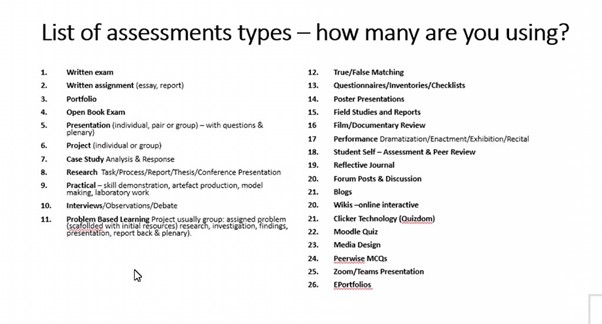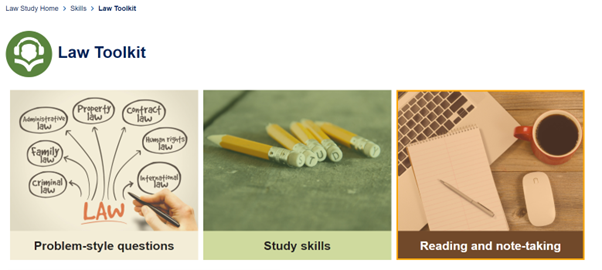What students tell us about assessment

Blog post by Liz Hardie and Sarah Henderson
The quote from the Dalai Lama below reminds us of the importance of listening and respecting the views of others.
As academics and tutors we love to talk (often for far too long!) about things that interest us or we are passionate about, and yet it is in listening to others that we gain new ideas and develop our thoughts and practices.
In the Law School, listening to the views and experiences of students can, and does, help us to improve the learning that we offer.

“When you talk, you are only repeating what you already know.
But if you listen, you may learn something new”
Dalai Lama @ MIT (8094663758).jpg
Consulting students
.png)
The Open University, in common with most other universities, increasingly recognises the importance of involving students in their learning in many different ways. One way in which this is done in the Law School is through bi-annual consultations with law students on a variety of different topics. These consultations run for two weeks through a forum, where students are asked to discuss a number of questions about a topic chosen by the law Board of Studies, but can also comment on other related issues. In June 2021 we carried out a student consultation on assessment, in order to inform the assessments on our new law modules which started in October 2021. We thought the outcome of that consultation would be of interest to both our students and other academics.
All law undergraduate students were invited to participate in the discussion; a total of 6,289 students. Over the two week period there were 180 posts by students, with 47 students posting at least once and 168 estimated readers. This highlights one of the problems with this form of consultation, as only a minority of students become involved in the forum conversation. Despite this, we received a number of interesting comments about assessment, which has led to changes in the way we assess within the Law School.
Assessment Type

Different students found value in different assessment types. This re-enforced the need to incorporate a diverse range of assessment types in our modules, something we have carried forward into the new law modules with assessments including blogs, authentic practice tasks, oral recordings, posters and reflections as well as the more traditional essays and problem-style questions. Students found problem-style questions particularly helpful as these enabled them to really consider the materials and how the law can be applied in “real life”; this is exactly why law schools set these types of questions and so we were really encouraged by this feedback.
Multiple Choice Questions
 https://www.hippopx.com/en/quiz-test-exam-questionnaire-multiple-choice-testing-answer-105233
https://www.hippopx.com/en/quiz-test-exam-questionnaire-multiple-choice-testing-answer-105233
Our modules increasingly use multiple choice questions (MCQs) as a form of assessment; these prepare students who wish to become a solicitor in England and Wales for the MCQs they will face in the Solicitors Qualifying Exam Part 1. Some students enjoyed these types of questions and found them a useful way to help retain information. The immediate feedback was particularly appreciated. However, other students commented that they did not feel MCQs tested skills beyond the ability to pick out the right information. This was fed back to the module teams, and MCQs are now used to test a wider variety of skills as well as knowledge.
Recorded assessments
 https://iconscout.com/icon/recording-29
https://iconscout.com/icon/recording-29
Another form of assessment used in a variety of different modules is a recorded oral presentation. Again some students valued this type of question and recognised its value in developing skills. Students did sometimes struggle with the technology needed for this type of assessment, and some students lacked the digital skills needed to edit recordings. Including shorter oral presentations earlier in the module may help students develop the digital skills and confidence needed. Some students reported difficulties in using the required technology for editing recordings. Others did not find value in very short recording activities. However, as the short recordings are in place to help students develop their technological skills in a low-stakes way before their lengthier assignment, these were deemed necessary to retain along with additional information for students about the reasons for, and value added by, these tasks.
 https://pix4free.org/photo/15963/reflection.html
https://pix4free.org/photo/15963/reflection.html
Reflective questions also attracted a lot of comment and debate. Many students did not enjoy reflection and thought it was a “box ticking exercise” or not a sufficiently academic skill. Others recognised that reflection is an employability skill and that reflective practice is useful in the workplace. In response to this feedback we have introduced some online sessions specifically on reflection as students start their stage 3 studies and have highlighted its importance as a recognised academic and employability skill.
Assessment guidance for students
.png) https://www.flickr.com/photos/solutionist/48227462591
https://www.flickr.com/photos/solutionist/48227462591
As well as the assessment question itself, we provide guidance and advice to students for each assignment. Many students commented that they found this guidance helpful, particularly information on what is required to meet each grade boundary. There were a few students who were concerned that the guidance can be “too helpful and comprehensive” as they struggle to follow everything within the word limit. In response to this feedback, module teams have reviewed the guidance provided in order to strike a balance between leading students through what is expected and how to structure an answer, and allowing students the freedom to exhibit their individuality. Guidance is therefore more detailed at stage 1 and becomes less prescriptive as students progress with their studying and skills development at levels 2 and 3.
Finally there were some concerns that the guidance can include errors and, where these are corrected, they needed to be advertised more clearly to students. As a direct result of this, a new policy has been developed in relation to changes to assessment (including guidance) once a presentation has begun. This sets out how changes should be managed, how it should be communicated to students and ensures that there is no detriment to students who may not have seen the change or may have submitted their assignment early before the change took place.
Skills development

Finally students discussed the skills they needed to complete assessment. They found the existing resources useful to build their skills in time for the assessment, and highlighted in particular the tutorials, course materials, library resources and the materials on the qualification website. A number of suggestions were made for other resources which might be helpful, and a new Law Toolkit has been developed and is available on the qualification website. This includes resources on legal writing, study skills (including referencing), reading and note taking, legal skills, research, essay writing and constructing answers to problem-style questions. More resources will be added to the toolkit over the next few years.
In listening to and discussing the students’ views on assessment we gained new insights and ideas, some of which have directly led to changes in the assessment carried out on our new law modules and the ways in which we prepare students for that assessment. This is only one example; we have carried out six consultations on different topics over the last three years. We hope that sharing the findings from the consultation and our response to it encourages students that your voice is important; we do listen to and consider the views you tell us. We also hope it will inspire other law academics to think about the way in which they listen to and partner with students, as well as the ways in which they assess those students.

Liz Hardie
Liz is a senior lecturer-in-law and Teaching Director of the Open University Law School. She has worked as part of the Open Justice Centre since 2016, supporting law students to carry out pro bono projects both as part of their law degree and on an extra curricular basis.
Liz leads the Open Justice online policy clinic and mediation project and is a supervising solicitor in the online law clinic.
She is particularly interested in online learning and the use of technology in legal education, including the moving of clinical legal education online.
.jpg)
Sarah Henderson
Sarah is a Lecturer and former Head of Student Experience within the within Open University Law School. Currently working on the authoring and development of online undergraduate law units, Sarah has a key interest in the ways in which digital teaching methods can enhance the student experience and academic outcomes.
Current scholarship projects are centred around the provision of feedback to distance learners and the ways in which both tutor and peer support can be most effectively delivered in an online environment.